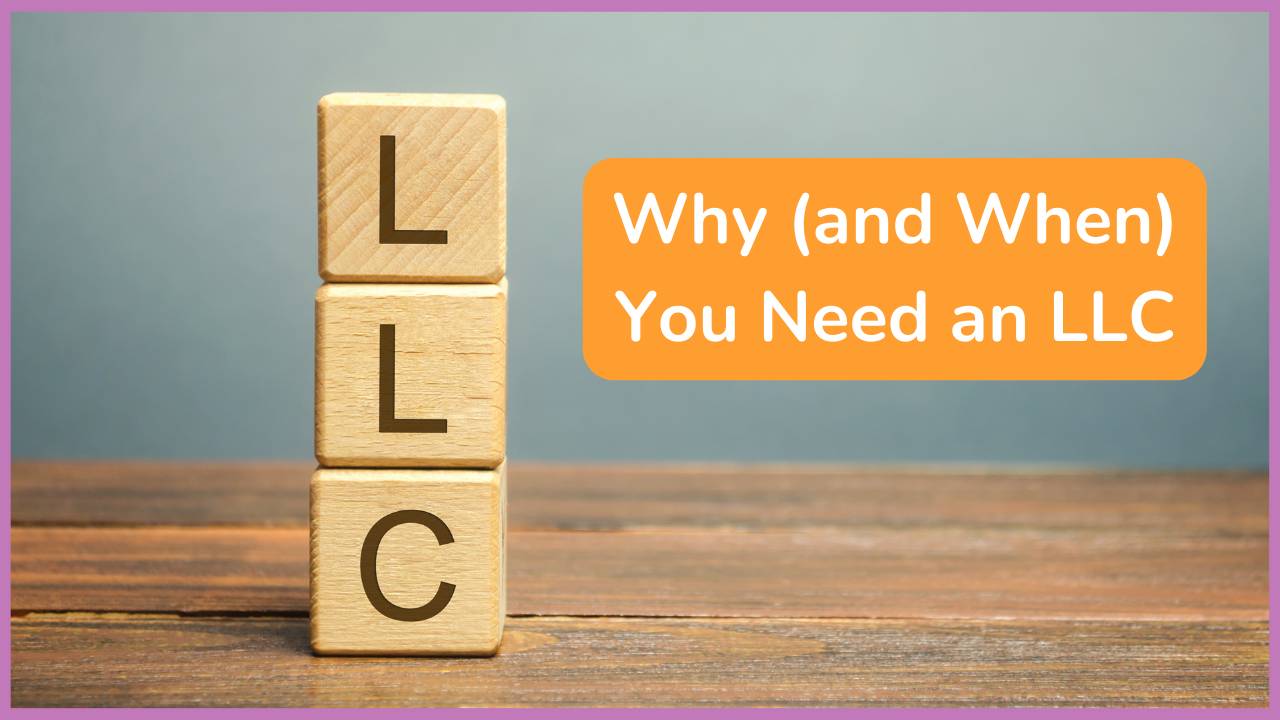
Why (and When) You Need an LLC
Dec 15, 2022Lots of business owners call me when they’re thinking about starting a business and ask me two things: “Do I need an LLC?” and “When do I form it?”
Do I need an LLC?
Operating your business under a separate legal entity—such as a limited liability company or corporation---can be a very important first step to (a) legitimize your business, and (b) protect your personal assets from the liability risks that your business faces (and vice versa).
Having a separate legal entity creates a distinct “business” that:
- creates a separation between your “brand” and your personal identity,
- separates your business income from your personal income, and
- begins building equity and value in something that can be transferred/sold to others.
There are provisions that protect the business owner(s) from personal liable for the debts of the business under many states’ laws and, often, the key governing documents of your business. This liability shield is pretty strong—unless you take certain actions to accept personal responsibility, such as signing a personal guaranty, or failing to keep business assets separate from your personal assets (often referred to as “commingling funds” or, in other contexts, “piercing the corporate veil”).
For these and many other reasons, forming a separate business entity is a critical step to ensure that
- personal assets will not be at risk if your business is sued or owes money to a third party, and
- you will be able to maximize the value of your equity when it is time to exit your company.
When should I form my LLC?
If you’re not sure whether your business is “big enough” to require a separate legal entity, one good measure of thumb is to assess how much risk your business is exposed to. If you’re still in the start-up phase where you’re validating your idea or building out your product offerings, you may not need a separate legal entity quite yet. But before you start accepting money from customers or signing contracts with third parties, it is a smart idea to create a separate business entity to accept those funds—and the risks and obligations that go along with them.
The other very important time to form a legal entity is if you’re entering into a business venture with other business partners. In many states, you will be deemed to have a “general partnership” where each of the partners is responsible for the debts incurred by the other business partners—until and unless you take affirmative steps to form a different legal entity (such as an LLC or corporation) to shield you from personal liability.
So, if you’re still designing your website and haven’t actually launched yet, you can probably wait to form your LLC, but if you’re chatting with potential business partners or ready to engage your first client, it’s time to form your entity!
If you need help deciding on which entity type is right for you and forming your entity, please see our New Business Formation services or Book a Call with Meredith!

